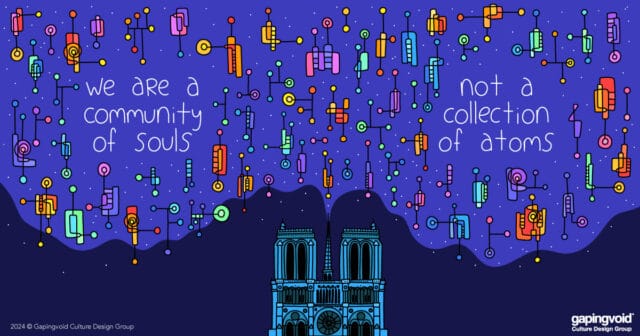
[Good party. Impressive backdrop.]
Just got back from a massive Microsoft party at the the Musee de l’Homme.
I have to get up early tomorrow. Big day at Imagination 07. Steve Ballmer is giving the keynote.
This conference is built around the folk who think of Microsoft in terms of “media”, as opposed to software. Which, as a former advertising hack, I find interesting.
A line I have used many times before, I found myself using quite a lot today: “Google is just one algorithm away from Oblivion.”
I handed out A LOT of Blue Monster business cards at the event. Though not everybody there had heard of the Blue Monster, it seemed the people who did were really enthused and passionate about it.
The more I get into this conversation, the more I’m starting to think that somehow I managed stumble upon this cultural fault line inside Microsoft, about what the company actually means to people, and where “the conversation” should be heading. One Microsoftee confided in me, “Our products are fine. Our marketing is the weak link, though.”
I would agree. Which is why I’m fond of saying, the future of Microsoft lies squarely in how they talk to people. That’s me thinking as a marketer, a “culturalist”, not as a techie.
i.e. If “markets are conversations”, then yeah, how you talk to people is the DNA of marketing.
N.B. Unlike some of the stuff going on in Redmond, none of this is rocket science. Which may explain why Redmond seems to have so much trouble grasping this.
 The Gapingvoid Email - free insights & inspiration three times a week!
The Gapingvoid Email - free insights & inspiration three times a week!
wpDiscuz


